Our Team
Pagination



- Monitoring & Evaluation, Portfolio and Knowledge Management
Aarushi will manage the EAP, LCR, MNA and ECA regional portfolios, and support the team in donor relationship management. Aarushi is a seasoned international development professional with over a decade of experience in donor funded program management, evaluation, and partnerships. Her career spans multiple sectors, including digital transformation, private sector development, regulatory reform, textiles, and agriculture. Prior to joining ESMAP, Aarushi worked within the World Bank's Digital Development (DD) and Finance, Competitiveness, and Innovation (FCI) Global Practices, where she specialized in portfolio, results, and grant management. Aarushi holds a Master of Public Policy from the National University of Singapore and a Bachelor of Economics (Honors) from Miranda House, Delhi University.


- Foundations for The Energy Transition
Abhishek has joined the Energy Transition team on a DAIS to support the development of programmatic approaches for the Bank’s energy sector priorities such as green hydrogen and other frontier technologies, with the goal of mobilizing climate finance and private capital.
Prior to this, as part of the Climate Change group (SCCFE), Abhishek was supporting the delivery of Mission 300 and Engagement Roadmap for Carbon Markets by contributing to the areas of country engagement, policy, digitalization, strategic partnerships, and capacity building. He has worked at the Climate Investment Funds where he led design, fund raising and implementation of thematic investment and advisory platforms, incl. the Accelerating Coal Transition (ACT) Investment Program and Technical Assistance Facility for Clean Energy (TAF), with the goal of leveraging concessional public finance working closely with key development partners. He has also held positions at IFC, UN Climate Change and World Bank, and holds master’s degrees in economics and finance. He lives with his wife (Nidhi) and two young girls (Reyna, 11 and Navya, 7) in McLean, VA.


- Energy Subsidy Reform Facility
- Electricity Access
Adwoa joined the Bank as a Young Professional in the Africa region in 2018 as an Energy Specialist focusing on: (a) sector reforms; (b) energy access; (c) regional trade; (d) renewable energy development; and (e) utility reforms. She brings a solid track record of experiences in developing and delivering complex operations in sector and utility reforms, access, power generation, network rehabilitation and reinforcement and regional integration. Her work in ESMAP will focus on co-leading the Energy Subsidy Reform facility and Electricity Access.
Adwoa holds a PhD in Economics from the University of Durham – UK having researched on electricity sector reforms, electricity access, market design and competition. She also holds an Msc in Energy Economics and Policy from the University of Surrey- UK. Prior to joining the Bank, she founded and managed an energy consulting firm AA Emery Energy and petroleum Consult which worked to facilitate energy projects into Ghana. Adwoa is a Management Committee Member for Access for Women in Energy and was fellow at the Durham Energy Institute. She tutored macroeconomics and environmental economics to undergraduate and master’s students at the University of Durham. In addition to her core research interests, she also worked on smart electricity systems and was seconded to Hellenic Telecommunications Organization S.A. in Greece where she worked in a team to explore regulatory challenges of smart grid development and deployment.
Adwoa has extensive operational experience having worked in Eswatini, Tanzania, the West Africa Power Pool, Burundi, Cameroon, Chad, Liberia, Vietnam, Ghana, Liberia, Comoros, Burundi, and Burkina Faso.


- Energy Data and Analytics
- Foundations for The Energy Transition
Anders Pedersen leads ESMAP’s cybersecurity initiative, which delivers capacity building, technical assistance, and grant support to more than two dozen countries. He also provides global analytics on grid digitalization, energy for data centers, and AI for the energy sector as a member of ESMAP’s Foundations program. He further co-leads ESMAP’s Energy Data and Analytics program where he manages a suite of applications for data-driven decision making including EnergyData.info, Global Solar Atlas, and energy asset mapping. Anders provides extensive cross-support to regional energy teams on grid digitalization, cybersecurity, and innovative methods for detection of installed rooftop solar. He lastly works closely with the Digital Transformation VP on global and regional analytics on energy and digital synergies in particular to support M300 countries. Prior to joining the World Bank Anders served in a technical director role at World Resources Institute, where he oversaw a portfolio of geospatial data projects working with governments, major philanthropic donors, and technology companies. Anders holds a MA and BA degree in Political Science from University of Copenhagen.
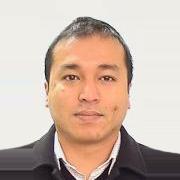

- Energy Data and Analytics
- Electricity Access
- Global Mini Grids Facility
- Integrated Electrification Strategies and Planning
Ashish leads the Integrated Electrification Strategies and Planning team and is a member of the Mini Grids team at ESMAP. His work focuses on geospatial least-cost electrification planning and optimizing the rollout of grid, off-grid and mini grid solutions towards universal electricity access, including the development of the Global Electrification Platform. Ashish is responsible for the development of mini grid portfolio planning methodologies and their implementation in World Bank operations and is also supporting energy access projects in Nigeria, Ethiopia and Sudan. Prior to joining the World Bank, he worked at the public utilities commission in Massachusetts. Ashish holds a BA in Economics from Hamilton College and an MA in Sustainable International Development from Brandeis University.
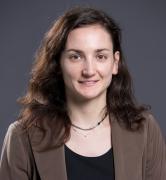

Barbara Ungari, Energy Specialist
Foundation / Modern Energy Systems
As part of the ESMAP energy access team, Barbara provides support to the Modern Energy Systems work stream, which includes utility digitalization and modernization.
Barbara has close to 15 years of experience in international development and has been supporting several World Bank's energy operations.
Barbara has completed an executive summer program at MIT in 2023 on clean energy solution and holds a master in environmental sustainability.
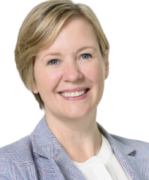

- Hydropower Development Facility
Bente leads the Hydropower Program under the Energy Transition workstream. Prior to joining ESMAP, Bente held the position of Senior Mechanical Engineer, Project Manager and accredited Dam Safety Specialist for hydraulic steelworks and penstocks at a consultancy firm. Her work focused on hydropower greenfield projects, rehabilitation, modernization, and hybrid projects across a spectrum of low to high-income countries. Bente brings a comprehensive understanding of hydropower projects ranging from 1 MW to 1300 MW, with hands-on experience in all stages of project development. This includes analytics, advisory services, scoping studies, detailed design and engineering, tendering, contract management, manufacturing, construction, commissioning, and operation and maintenance. Bente holds a particularly strong expertise in turbines and electromechanical equipment, as well as in rehabilitation projects.
The inspiration for Bente to specialize in hydropower stems from a profound passion for sustainable renewable energy solutions and a commitment to tailoring flexible hydropower and its energy storage to sustain and enhance power system resilience and energy security. Additionally, she is particularly interested in optimizing the performance of hydropower plants to provide essential energy services that support the expansion of variable renewable energy sources.
Bente holds a Master of Science (MSc) degree in Mechanical Engineering with a specialization in fluid dynamics from the Norwegian University of Science and Technology.
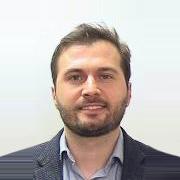

- Electricity Access
- Clean Cooking Fund
- Integrated Electrification Strategies and Planning
Besnik is part of ESMAP’s Energy Access team, focusing on electrification and innovative financing for expanding energy access. Within the World Bank, Besnik has provided technical support to projects related to off-grid electrification, electricity demand stimulation, clean cooking, and economic analysis of electricity access projects. Prior to the Bank, Besnik was a researcher with the Natural Resource Governance Institute. Besnik holds a BA degree in International Relations from Stanford University and a MA in International Economic Policy from Columbia University's School of International and Public Affairs.


- Energy Data and Analytics
Bryan is part of the ESMAP SEforALL Knowledge Hub team, focusing on the Multi-Tier Framework. He also serves as the focal point for ESMAP’s work on geospatial electrification planning and supports Lighting Global activities. Previously, as a consultant, Bryan was a field coordinator for the Multi-Tier Framework energy access global survey in Rwanda, Uganda, Myanmar, and Cambodia; supported the power-agriculture nexus component in the Africa Geospatial Electrification Planning activity and an assessment of mini-grid operators in several countries; and was a member of the Nigeria electrification project team. Prior to this, Bryan worked in the World Bank’s Europe and Central Asia region on energy subsidy reform and the impact of cross-subsidization on industrial competitiveness. Bryan holds two MAs in Public Policy and Political Science from Georgetown University (USA) and Kyunghee University (Korea).


- Green Hydrogen
- Industrial Decarbonization
Carolina is an international lawyer with over 10 years of experience implementing policies and regulations to mobilize private sector investments in the energy sector. Since joining the World Bank in 2018, she has contributed to lending operations focused on green hydrogen, industrial decarbonization, and renewable energy across Latin America and Sub-Saharan Africa. Prior to her tenure at the World Bank, Ms. López-Rocha worked at Organisation for Economic Co-operation and Development (OECD), the Inter-American Development Bank (IDB), and the Mexican Chamber of Commerce in China. In these roles, she led initiatives to implement public-private partnerships and attract private investment in infrastructure projects throughout Eastern Europe and the Latin America and Caribbean region.
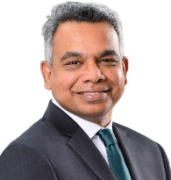

- Foundations for The Energy Transition
- Renewable Energy
- Energy Climate Finance
- Energy Storage
- Energy Storage Partnership (ESP)
As Practice Manager, Chandra oversees a global portfolio of analytical and advisory activities in the energy sector, as well as the Bank’s energy climate finance operations. ESMAP is a partnership between the World Bank and more than 20 partners to support energy access and decarbonization in low- and middle-income countries.
Prior to assuming my current post as ESMAP’s manager, I held leadership roles in energy transition and climate finance at the World Bank and IFC. I recently led the battery storage program and coal transition programs at ESMAP. I have over 20 years of experience on topics including energy efficiency, renewable energy, energy storage, coal transition, and energy access across 15 countries in South Asia, East Asia, and the Middle East and North Africa.
Chandra holds a PhD in Energy and Environmental Policy from the University of Delaware, Newark, Delaware.
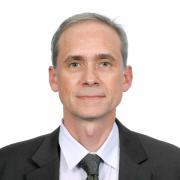

- Innovative Solar
- Accelerating Decarbonization
Christophe is coordinating the Innovative Solar window under the Renewable Energy Program. Prior to joining ESMAP, Christophe was the Climate Change Coordinator for the Energy Practice in the East Asia and Pacific Region. He coordinated the China Energy Team in Beijing for three years and both the Energy and Climate Change World Bank engagements in Brazil for five years. Christophe joined the Bank Energy Practice in 2002, having lead teams for 25+ projects and 25+ analytical works in Energy covering a broad spectrum of topics ranging from rural access to renewables, energy efficiency, coal phasing out, battery storage, electrical vehicles, Advanced Metering Infrastructure (AMI), energy pricing, power and gas sector reforms, utility management and privatization, mineral sector reform, institutional modernization, post-disaster recovery in Sub-Saharan Africa, Latin America and the Caribbean, South Asia and East Asia, and before the Bank, also in Europe.
Christophe has been working on Climate Change and Carbon / Green Finance across several sectors for more than 20 years, leading pioneer reports on low-carbon development and climate change strategies in several countries and regions as well as developing innovative tools and modeling related to GHG abatement costs and investment financing. Before joining the World Bank, he was a Senior Researcher at CIRED, a public research center in energy and environment economics located in Paris, France, coordinating the areas of power sector reform, RE, Demand Side Management, rural access and GHG mitigation in Europe and developing countries. He participated in Kyoto Protocol negotiations as a member of the official French delegation to UNFCCC, leading Tech Transfer (art 4.5) and CDM (art. 12) and was appointed to the UNFCCC Secretariat CDM MethPanel for 5 years to design and implement the CDM globally. He holds an engineer degree, a master’s degree in business administration and a PhD in Energy Economics and published peer-reviewed papers in several scientific journals.